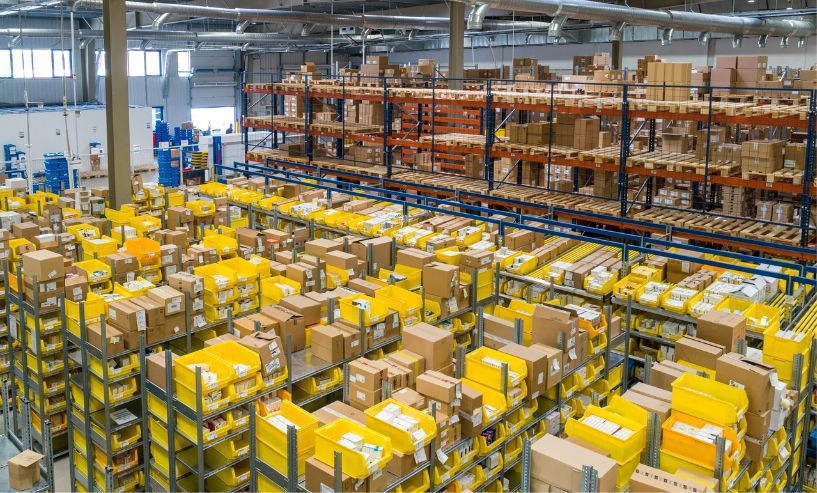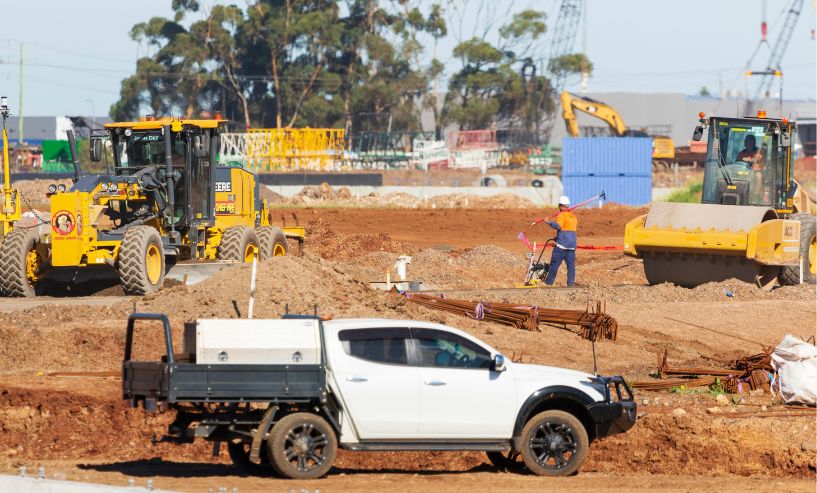Australia’s top industries in 2026
If you’re planning to work in Australia, you’re entering a dynamic and diverse market. Knowing which industries are thriving will help you make informed decisions on where to focus your job search.
In this blog, we will explore Australia’s top industries that are predicted to experience significant growth over the next few years.
1. Healthcare and social assistance

Healthcare and social assistance will remain a top industry in 2026, driven by an aging population and increased demand for quality support. The sector is Australia’s biggest employer, with 2.2 million workers expected in 2026. In 2025, the sector reached $217.3 billion in revenue and is predicted to reach US$382.3 billion by 2033.
The Australian Government has committed $140 billion to the healthcare industry for 2025-2026; part of a total commitment of $537 billion over 4 years. The market size is projected to grow over the next 5 years with a focus on preventive care and investing in AI particularly in areas such as disease diagnosis, drug development and personalised medicine.
Overall employment is expected to grow by 12.5% over the 5 years to 2029 with aged care and disabled care jobs expected to increase by 28% and registered nurses by 13.9%.
Possible job roles
Aged and Disabled Carers | Registered Nurses | Child Carers | Welfare Support Worker | General Practitioner
2. Renewable energy

The United Nations’ Sustainable Development Goals (of which Australia is a member) has included affordable and clean energy and sustainable cities and communities as part of its mission to create a peaceful and prosperous world. Australia has a renewable net-zero target greenhouse gas emissions to reach by 2050.
Australia's renewable energy capacity is set to grow at a rate of 11.61% for the next 5 years. In the Australian Government’s Future Made in Australia package, $22.7 billion will be invested into key areas such as skills and training, renewable energy, supporting investment and industrial innovation by 2030.
clean energy council
The clean energy workforce needs 40,000 more workers by 2030 to support the energy transition.
Working in renewable energy allows you to contribute to reducing carbon emissions and combating climate change; helping to create a cleaner and more sustainable world.
Possible job roles
Renewable Energy Engineer | Sustainability Data Analyst | Project Manager | Energy Consultant | Ecologist
3. Technology

The Australian tech industry is growing with a strong demand for IT professionals across different industries. The industry contributes $167 billion to GDP and is one of the country’s fastest-growing economic drivers. Information and Communications Technology (ICT) roles will be among the fastest-growing roles in 2026.
ACS Australia’s Digital Pulse 2023
445,000 tech skilled workers are needed by 2030
Software developers and programmers
The Australian software development industry is experiencing significant growth, projected to reach over A$49.7 billion by 2030. This is largely driven by demand for custom software, software as a service (SaaS), cloud solutions, artificial intelligence (AI) and digital transformation across sectors such as fintech and health tech. According to Jobs and Skills Australia, the sector will experience an annual 6% employment growth.
Possible job roles
Software Developer | Full-stack Developer | DevOps Engineer | Cloud Engineer | Technical Project Manager
Cyber security specialists
From 2025 to 2030, the cyber security market size in Australia is expected to grow from US$8.85 billion to US$16.68 billion (CAGR 13.5%). The Australian Government has committed over $2.3 billion to the Cyber Security Strategy out to 2030.
Industry growth has been fuelled by digital threats, increased exposure to cyber risk and tougher cyber risk regulations. Cloud and remote working models, internet of things (IoT), and the expansion of wireless mobile networks has led to increased data susceptibility. Over the next 5 years, new opportunities will arise with further adoption of AI, machine learning and blockchain technologies.
Possible job roles
Cyber Security Analyst | Cloud Security Engineer | Penetration Tester (Ethical Hacker)| Security Architect
Data analysts
As technology evolves, the amount of electronic data collected every second increases. Business analysts are needed to make sense of complex data to solve real-world problems and create actionable insights for organisations. According to Seek, there will be a 27.7% growth in employment for business analysts in Australia over the next 5 years.
Possible job roles
Data Analyst | Data Scientist | Business Intelligence Analyst | Machine Learning Engineer | Data Governance Specialist
4. AI technology

With rapid digital transformation, Australian businesses are looking to Artificial Intelligence (AI) to grow and innovate. Businesses that offer AI-driven services, automation and software solutions will be in demand as companies seek ways to improve efficiency and productivity. For example, traditional manufacturing processes are being transformed through automation, robotics and digital technologies. Over 2025-2031, the market size will have an annual growth rate of 32.03%, resulting in a market volume of $US29.39 billion by 2031.
A CSIRO report revealed that 68% of businesses across a range of industries have integrated AI into their operations with another 23% planning to do so in 2025. The Australian Government’s AI has invested $17 million into the AI Adopt Program to help small to medium firms adopt AI solutions.
According to the Tech Council of Australia (TCA), Australia could see up to 200,000 AI-related jobs by 2030. The growth is not only in AI/Machine Learning engineer roles, but also in roles where AI is applied such as analytics, business intelligence and operations.
Possible job roles
AI Engineer | Data Scientist | AI Solutions Architect | AI Consultant | Business Intelligence Analyst
5. E-commerce

Online shopping is the ‘new normal’ and e-commerce adoption is becoming increasingly popular. Australian e-commerce market sales are estimated to grow by 21.87% (CAGR) between 2025 and 2030. Revenue in the e-commerce market is projected to be US$39.36 billion in 2025. With an annual growth rate of 3.39%, it will reach a market volume of $46.51 billion by 2028. The number of users will grow to 26.2 million by 2030, which is more than 90% of the current Australian population.
More than 58% of Australians use social media for brand and product research with 40% of consumers buying products after viewing it on social media platforms. The growth of e-commerce is driving demand in related employment areas, especially in logistics, fulfilment and delivery.
Possible job roles
Market Research Analysts | Web Developers | Warehouse Team Lead | Digital Marketer | Computer Systems Analyst
6. Construction

The building and construction industry is one of the largest sectors in Australia. The sector is forecast to grow 3% each year from 2024 to 2027 supported by a $15.5 billion government investment in infrastructure from the 2023-24 Budget. Due to population growth and the demand for urbanisation, Australia is investing billions into the construction of roads, train lines and other public transport networks to support the growing population and improve connectivity between urban and regional areas.
Construction is Australia’s biggest industry in terms of the number of businesses trading (around 453,000). Employment is forecast to grow from 1.29 million in May 2023 to 1.41 million in 2033 (9.5%). Trends within the construction industry are moving towards more sustainable and eco-conscious solutions and teams are embracing new technologies to automate and improve their operations.
Possible job roles
Civil Engineer | Surveyor | Urban Planner | Project Manager | Health & Safety Officer
Interested in more career advice? Read our Business Career Guide. Learn how our Career Central team can help you advance your career.









